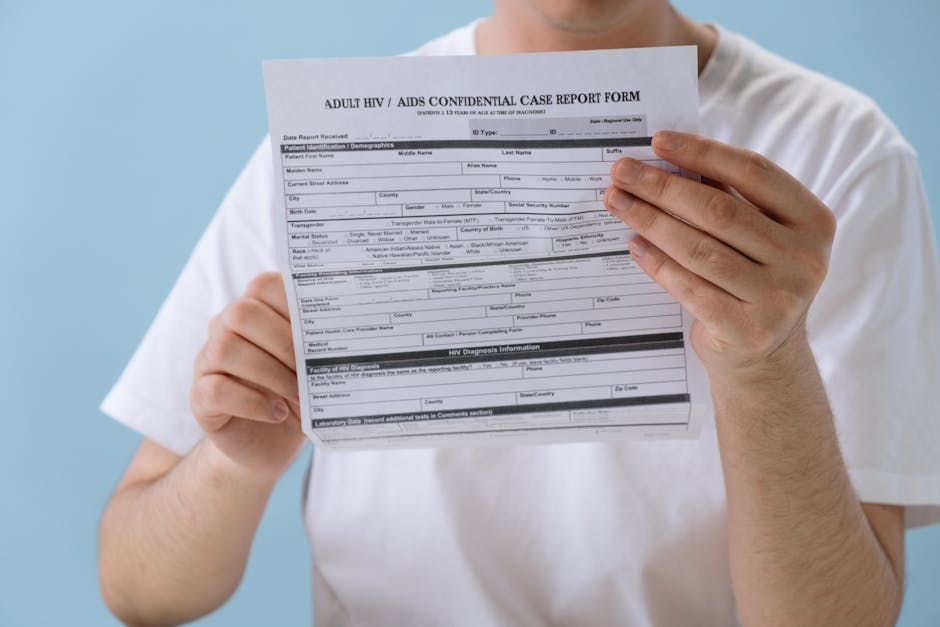Prep Therapies from Gilead: Secure Your HIV Prevention
HIV prevention has taken significant strides in recent years, with PrEP (pre-exposure prophylaxis) therapies emerging as a cornerstone in reducing the risk of HIV transmission. Among the leaders in this field is Gilead Sciences, a biopharmaceutical company renowned for its innovative approaches to HIV prevention and treatment.

With a commitment to public health and scientific advancement, Gilead has developed therapies that not only lower the risk of HIV but also empower individuals to take proactive steps toward their well-being. Understanding these therapies and their impact is essential for anyone looking to explore modern solutions for HIV prevention.
The Science Behind PrEP
Pre-exposure prophylaxis (PrEP) refers to the use of antiretroviral medications by HIV-negative individuals to prevent the acquisition of the virus. When taken consistently, PrEP can reduce the risk of HIV transmission through sexual contact by over 99%, according to data from the Centers for Disease Control and Prevention (cdc.gov). This remarkable efficacy makes it one of the most effective tools available for HIV prevention today.
The mechanism behind PrEP involves stopping the virus from establishing a permanent infection in the body. The medications used in PrEP contain compounds that inhibit HIV's ability to replicate in human cells. Gilead’s therapies, such as Truvada® and Descovy®, utilize a combination of drugs that block critical enzymes required for viral replication. By preventing this replication process, these treatments offer a robust defense against HIV infection.
It’s important to note that while PrEP is highly effective, it does not protect against other sexually transmitted infections (STIs). For comprehensive sexual health, individuals are encouraged to combine PrEP with regular STI testing and barrier methods like condoms.
Gilead's Innovations in PrEP
Gilead Sciences has been at the forefront of PrEP development, introducing groundbreaking medications that have transformed how we approach HIV prevention. Truvada®, approved by the U.S. Food and Drug Administration (FDA) in 2012, was the first drug licensed for use as PrEP. This medication marked a turning point, providing an accessible and highly effective option for those at high risk of HIV exposure.
Following Truvada®, Gilead introduced Descovy®, which gained FDA approval in 2019 as another PrEP option. Descovy® offers several advantages over its predecessor, including a smaller tablet size and potentially fewer side effects. Clinical trials demonstrated that Descovy® is just as effective as Truvada® in preventing HIV transmission among men who have sex with men and transgender women (gilead.com). It’s worth noting that Descovy® has not been approved for use by cisgender women at risk of acquiring HIV through vaginal sex due to insufficient clinical trial data.
Both Truvada® and Descovy® underscore Gilead’s dedication to providing tailored solutions that meet diverse needs within at-risk populations. Their ongoing research and development efforts aim to expand options further and address remaining gaps in prevention strategies.
Accessing PrEP: Challenges and Solutions
While PrEP has proven to be a game-changer in HIV prevention, accessing these therapies can be challenging for some individuals due to cost, stigma, or lack of awareness. Gilead has implemented various initiatives to address these barriers and ensure broader access to its medications.
A key component of Gilead’s strategy is its co-pay assistance program, which helps reduce out-of-pocket expenses for eligible patients. Partnerships with community organizations and health clinics aim to increase awareness about PrEP and provide education on its benefits. According to aidsmap.com, such programs have significantly improved access among underserved populations.
Despite these efforts, disparities in PrEP uptake remain an issue. Black Americans account for a disproportionate percentage of new HIV diagnoses but are underrepresented among those using PrEP. Addressing this disparity requires targeted outreach and culturally competent healthcare services that resonate with affected communities.
- Increasing awareness through public health campaigns
- Providing training for healthcare providers on prescribing PrEP
- Expanding insurance coverage for preventive medications
- Collaborating with local organizations to reach marginalized groups
Tackling these challenges will require continued collaboration between pharmaceutical companies like Gilead, government agencies, and grassroots organizations.
The Role of Routine Care and Monitoring
Initiating PrEP therapy involves more than just taking a pill; it requires ongoing medical care and monitoring to ensure safety and effectiveness. Before starting PrEP, individuals undergo baseline tests to confirm they are HIV-negative and assess kidney function. Regular follow-ups every three months are standard practice while on PrEP therapy.
These routine visits serve multiple purposes: they allow healthcare providers to monitor potential side effects, test for STIs, and reinforce adherence to the medication regimen. Adherence is crucial because missing doses can compromise PrEP’s protective effect against HIV.
| Test Type | Frequency |
|---|---|
| HIV Testing | Every 3 months |
| Kidney Function Tests | At least every 6 months |
| STI Screening | Every 3-6 months |
| Hepatitis B/C Screening | Annually or as indicated |
This comprehensive approach ensures that individuals using PrEP remain healthy while benefiting from its protective effects. It also highlights the importance of working closely with healthcare providers who are knowledgeable about HIV prevention strategies.
Final Thoughts on Gilead's Contributions to HIV Prevention
The advancements made by Gilead Sciences in developing effective PrEP therapies have had a profound impact on global efforts to reduce new HIV infections. Medications like Truvada® and Descovy® have not only demonstrated exceptional efficacy but also empowered individuals with tools to take control of their sexual health.
This progress underscores the importance of continued innovation in medical science alongside efforts to dismantle barriers preventing equitable access. As we reflect on these developments, it becomes evident that collaboration among stakeholders (ranging from pharmaceutical companies to community advocates) remains crucial in achieving widespread adoption of life-saving interventions like PrEP.
Staying informed about options such as those offered by Gilead is vital for both individuals seeking prevention measures and communities striving for better public health outcomes overall.
